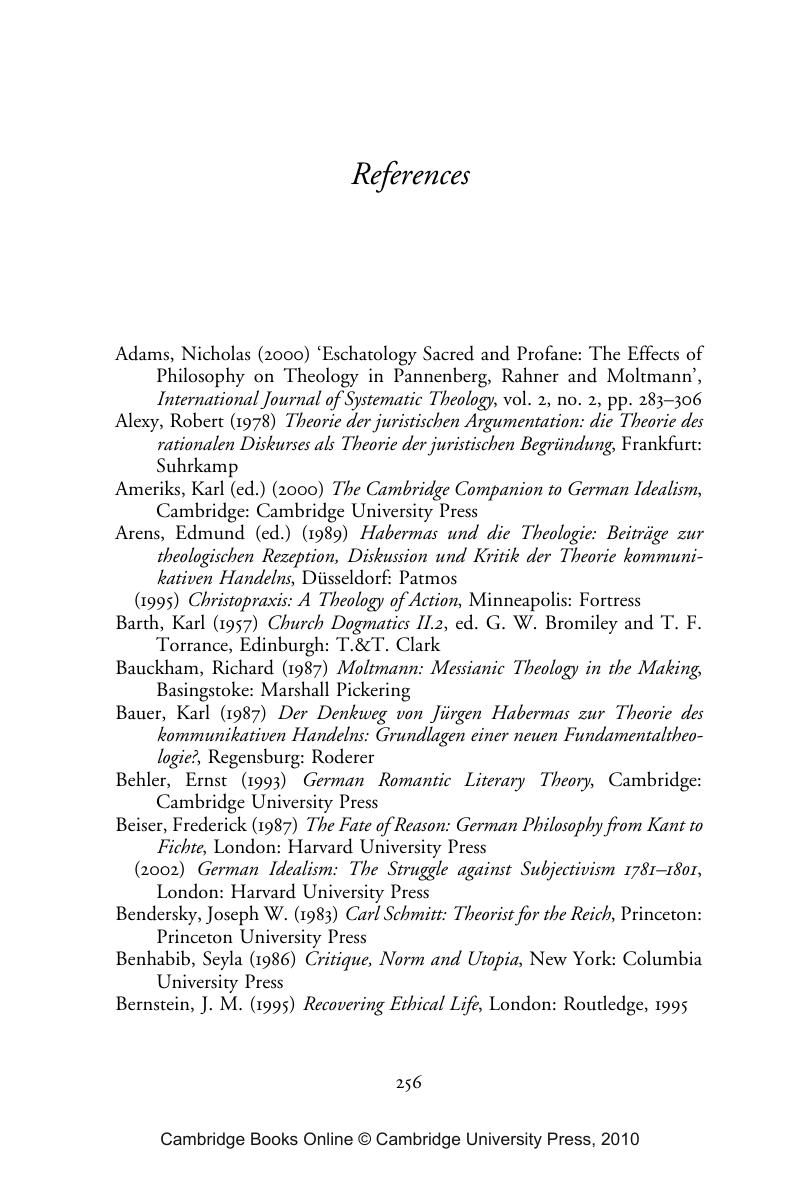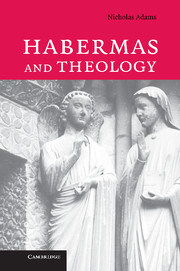Book contents
- Frontmatter
- Contents
- Preface
- 1 Religion in public
- 2 The ideal speech situation
- 3 Authority and distance in tradition
- 4 Sacred and profane
- 5 Universalism
- 6 Theology and political theory
- 7 Theology, social theory and rationalisation
- 8 Modernity's triumph over theology
- 9 Habermas in dialogue with theologians
- 10 Narrative and argument
- 11 Scriptural difference and scriptural reasoning
- List of references
- Index
- References
List of references
Published online by Cambridge University Press: 23 December 2009
- Frontmatter
- Contents
- Preface
- 1 Religion in public
- 2 The ideal speech situation
- 3 Authority and distance in tradition
- 4 Sacred and profane
- 5 Universalism
- 6 Theology and political theory
- 7 Theology, social theory and rationalisation
- 8 Modernity's triumph over theology
- 9 Habermas in dialogue with theologians
- 10 Narrative and argument
- 11 Scriptural difference and scriptural reasoning
- List of references
- Index
- References
Summary

- Type
- Chapter
- Information
- Habermas and Theology , pp. 256 - 264Publisher: Cambridge University PressPrint publication year: 2006

